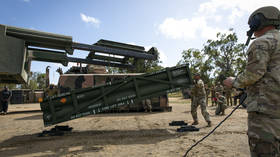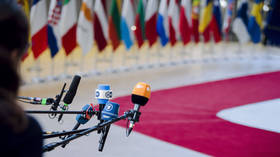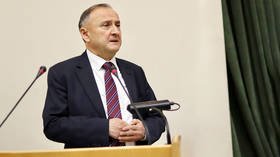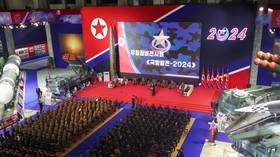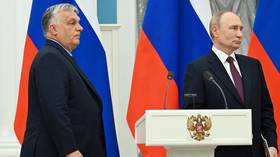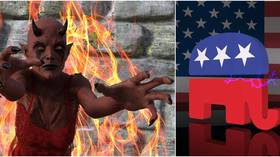‘I’m not proposing to extend my powers’: Putin says potential changes to constitution are not about him
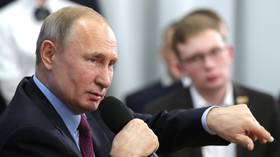
Are Putin’s constitutional proposals designed so he can “rule for life” or to partially undo Boris Yeltsin’s 1993 “super-presidential” reforms and make Russia’s system of governance more balanced?
Well, this depends on whether you believe the Western press or the man himself. The Guardian reckons it’s a “naked power grab” to “keep his hands on the levers of power.” A sort of sensationalism that has raised eyebrows in Russia, where the putative new rules are generally interpreted rather differently, even among many steadfast Kremlin opponents.
On Tuesday, at a public meeting in Cherepovets, the man himself insisted they are not designed to extend his powers. Instead, Putin said it’s about ensuring a unified system of government, presumably to improve efficiency and add some checks and balances.
He also indicated the alterations will be put to a public vote, instead of simply pushing them through parliament, which Putin could easily do given the ruling United Russia party’s huge majority.
“The amendments that I have proposed, in my opinion, are dictated simply by life (experiences),” he said, adding that during his time as president and prime minister, it became obvious to him that some things “don’t work the way they should work, for example, we often have issues in the field of healthcare, in the education system.”
According to Putin, a plebiscite will be held. “I have suggested this in order to ensure that through this supreme manifestation, these amendments are accepted or not accepted,” he explained. “If accepted, then nobody could say something is wrong here. This is the highest form of democracy.” Putin submitted a draft amendment to the State Duma, last month, which easily passed the first reading. He says planning for the amendments will now take more than three months.
Also on rt.com Putin proposes major amendments to Russia’s constitution incl. about his own post, says people should vote on changesPutin was responding to a question suggesting that the planned vote is basically “a vote of confidence in the person who made the amendments,” meaning the president himself. The woman concerned seemed to be asking if he would renew his powers for a fresh six years, in the interests of “stability,” an idea Putin didn’t appear to entertain.
He added that he is “pleased” with the wide discussion of the amendments across society, as “the more people will be engaged in this process, the more popular the constitution will be,” Putin added. “The constitution, since it was adopted, was amended 15 times. What is (being) proposed now is nothing unusual.”
Despite Putin’s assurances, some pundits remain skeptical. “I find it hard to believe that the proposals for constitutional change have nothing to do with Putin’s post-2024 planning,” says Alexander Titov of Belfast’s Queen’s University.
“Maybe Putin genuinely believes that concentrating so much power in the office of the president is bad if it’s not him who’s the president,” he continues, before sounding on a more optimistic note. “If Russia, as a result, will have more dispersal of powers, this could be a step in the right direction, even if it’s done to preserve Putin’s power for longer in a different capacity.”
On January 15, Putin stunned Russia when he proposed the changes during a message to the Federal Assembly. The new rules will limit future presidents to two terms, in total, meaning another leader won’t be able to serve for as long as he has. A week later, Putin told students in Sochi that Russia “has to be a strong presidential republic,” ruling out that any idea of staying on as a sort of Lee Kuan Yew-style mentor to his successor.
While this was considered successful in Singapore, Putin believes having two centers of power would be “absolutely fatal” for Russia.
If you like this story, share it with a friend!


